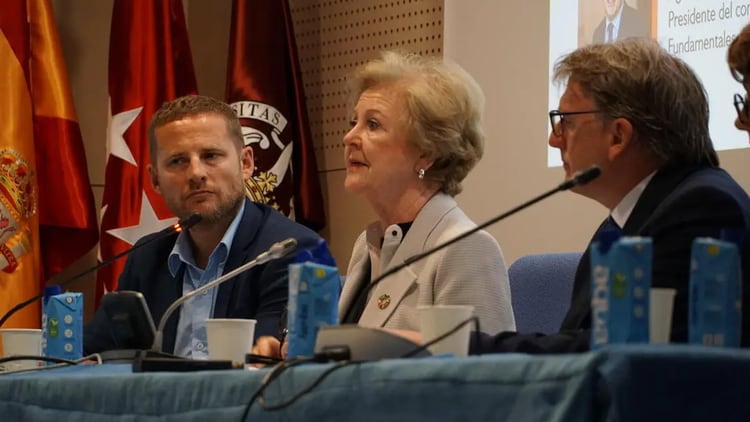The Diplomat
The conference “Tackling Statelessness in Europe” held this week in Madrid called for the adoption of measures to protect stateless persons and guarantee the right to a nationality at European level.
The meeting, organised by the European Statelessness Network (ENS), together with the Cepaim Foundation and the Complutense University of Madrid, brought together representatives of governments, civil society, NGOs, statelessness activists, refugee communities, intergovernmental organisations, experts and lawyers to discuss concrete actions to address the problems faced by stateless persons, according to UNHCR, the UN Refugee Agency.
UNHCR highlighted that the meeting took place in the run-up to the Global Forum on Refugees to be held in December, and in the penultimate year of the #IBelong (#IBelong) 2014-2024 campaign to eradicate statelessness.
The aim, according to UNHCR, was to identify ways to address current challenges and galvanise support for Europe to meet its obligations to protect stateless persons and guarantee the right to a nationality.
“This event aims to raise awareness of statelessness in Europe, encourage meaningful dialogue and ultimately push for the policy changes needed to address the needs and rights of stateless people,” said Chris Nash, director and co-founder of ENS.
Representing UNHCR, the UN Refugee Agency, Assistant High Commissioner for Protection Gillian Triggs discussed with the actors present ways to move forward and ensure implementation of the commitments to prevent and resolve statelessness in Europe, which were recorded at the High Level Meeting on Statelessness and the first Global Forum on Refugees in 2019.
“Statelessness is one of the most pressing and easily solved human rights violations of our time. Even today, there are people in Europe who are denied the right to a nationality and all the rights and opportunities that come with it,” said Gillian Triggs.
With millions of stateless people worldwide, UNHCR launched the 10-year #IBelong (#IBelong) campaign in 2014, with the aim of eradicating statelessness globally. The agency considers that this campaign “has served as a powerful platform to advance efforts to end statelessness, and since then, progress in Europe has been remarkable”.
According to UNHCR, the number of European states that have acceded to the UN Statelessness Conventions has increased, provisions for granting nationality to otherwise stateless children have been incorporated into national legislation, existing statelessness determination procedures have been improved and new procedures have been introduced in several states. Efforts have also been made in several countries to facilitate naturalisation.
The agency believes that despite these significant advances, much remains to be done. “Every year, thousands of children are born stateless in Europe, while data on statelessness remains very scarce and many countries still lack procedures to identify stateless migrants and refugees, depriving them of adequate protection,” it says.
“It is encouraging to see progress by many states, including in Europe, to end statelessness. But we need firm commitments and tangible progress from the whole of society to tackle this problem. Working together, with stateless people at the forefront, we have the opportunity to ensure a lasting impact on the lives of tens of thousands of stateless people who continue to struggle to access their fundamental rights across Europe,” added Triggs.
The conference in Madrid comes on the eve of Spain taking over the Presidency of the Council of the European Union in the second half of 2023. UNHCR stresses that, as noted in its Recommendations for the Swedish and Spanish presidencies of the EU, “Spain has been a strong advocate for stateless persons, evidenced by its 2019 GRF commitment to improve its statelessness determination procedure”.
In any case, the agency encourages Spain, during its presidency, to lead member states’ efforts towards a comprehensive strategy to end statelessness in Europe.
The European Network on Statelessness (ENS) is a civil society alliance of more than 180 organisations and experts from 41 countries. ENS is committed to ending statelessness and ensuring that all people living in Europe without nationality can access the rights to which they are entitled under international law.






